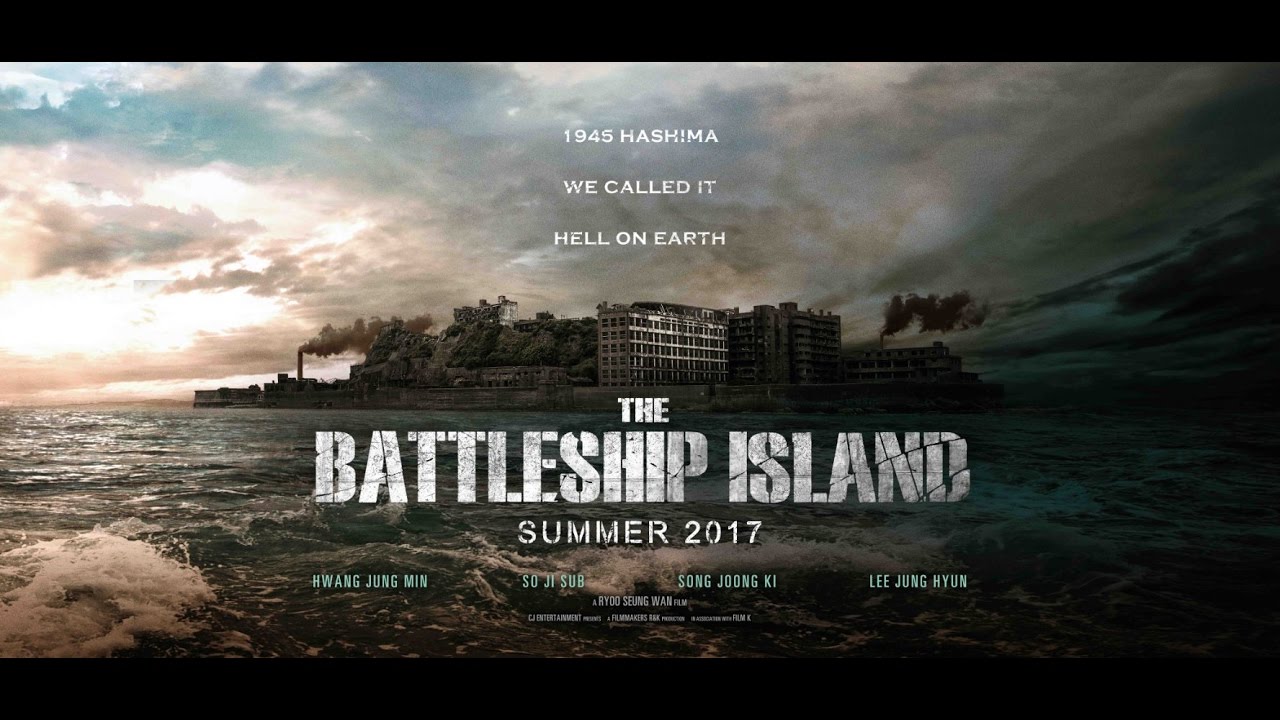 |
| ▲ ‘The Battleship Island’, the movie which brought a lot of criticism. |
There has been a lot of criticism of movies based on history, despite the majority of the directors including statements warning their audience that they have dramatized the story in order to make it more relatable for viewers, while still being based on real events. For instance people thought the movie ‘Battleship Island’ (known as Gunhamdo in Korea) distorted history. This film’s main criticism was that the director included action scenes where people were escaping the island, which is not reflective of what actually happened. However other criticism was a lot less justifiable. Being obsessed with the truth, critics of the movie missed the perspective the director was trying to portray in the movie. This clearly implies that most consumers do not want to respect diverse interpretations in movies that are based on actual historical events; which arguably violate the freedom of expression of the arts, which should, in fact, be respected.
First of all, even though Battleship Island included inaccurate accounts of forced labor escaping from the island, Korean viewers should have tried to think of why the director included this feature in the story. The director might have wanted to portray a sense of hope and fortitude for the forced laborer, though this factually inaccurate storyline, or simply wanted to make an action film, that is based on history but not reflective of actual events, either of which should not warrant the kind of criticism this film faced. The main producer of Battleship Island, Ryu Seung-wan, stated that he didn’t want his movie to be too patriotic, but rather to emphasize the empire of Japan as an irrational structure, that result in many individual sacrifices. Even though his statements may not explain away the controversy surrounding his movie to public, the film’s criticism should be based solely on the movie’s quality, such as acting, art or even the filming skills but not on its interpretation of history.
Furthermore, even though this movie has a fictional storyline, there are more benefits to seeing it than harm. Koreans aren’t all aware of the history behind the events in the story. By producing a film based on this moment in history, despite its action movie or fantasy appeal, the director is encouraging Koreans to seek out more information about the true history of these events. By including more interesting and emotional scenes in the movie, people may take a more active interest looking into the real history behind the movie. One prime example of this phenomenon came out of the movie called ‘The Throne’ (also known as Sado in Korea). This story is about a king who killed his own son, a reflection of the most tragic story in Korean histories. The director of this movie tried to focus on describing the feelings between the king and the prince and made it very emotional, rather than describing what was happening behind the scenes. Although this movie did not explain the perfect truth about the lieges who indirectly encouraged them to kill each other, this movie motivated people to understand how they could have felt in reality during that time. This was a positive effect the movie.
Therefore, what is more important for movie consumers to understand is that all movies do not consist of perfect truths, and it is responsibility of viewers to grow their own knowledge about events to better contextualize the films they watch. Moreover, since history is recorded by humans, it has always been up to a recorder’s opinion when documenting history. This is also one of the biggest reasons why history education should be able to contain diverse viewpoints, so that students can have critical opinions of world events. When it comes to making movies with historical contents, producers must decide how they will reflect past events such as what they will include and they normally do from their perspective, so we can never call their films historical, but rather say they are loosely based on real events. More importantly, if movie consumers agree that historical movies can never serve as a historical record, there will be more meaningful criticisms of these type of films. Consumers will be able to think about the director’s perspective, rather than simply criticizing the production for inaccurately dramatizing historical movies. The result will be a healthier criticism of the work, while respecting the director’s freedom of expression.
The Battleship Island controversy helped us see more clearly what critics should focus on when it comes to films with historical content. It is clear that no movie will contain 100 percent accurate reflections of history and that we are the ones who should broaden our opinions to respect artistic creativity. The most important reason for viewing a movie based on historical content is to remember our history; and understand why the movie is meaningful, while sharing thoughts about the film with other and respecting the director’s freedom of expression at the same time.
윤진현 dankookherald@gmail.com

![[Campus Magnifier] Let's Surf the Library!](/news/photo/202404/12496_1765_4143.jpg) [Campus Magnifier] Let's Surf the Library!
[Campus Magnifier] Let's Surf the Library!
![[Campus Magnifier] Let's Surf the Library!](/news/thumbnail/202404/12496_1765_4143_v150.jpg)





